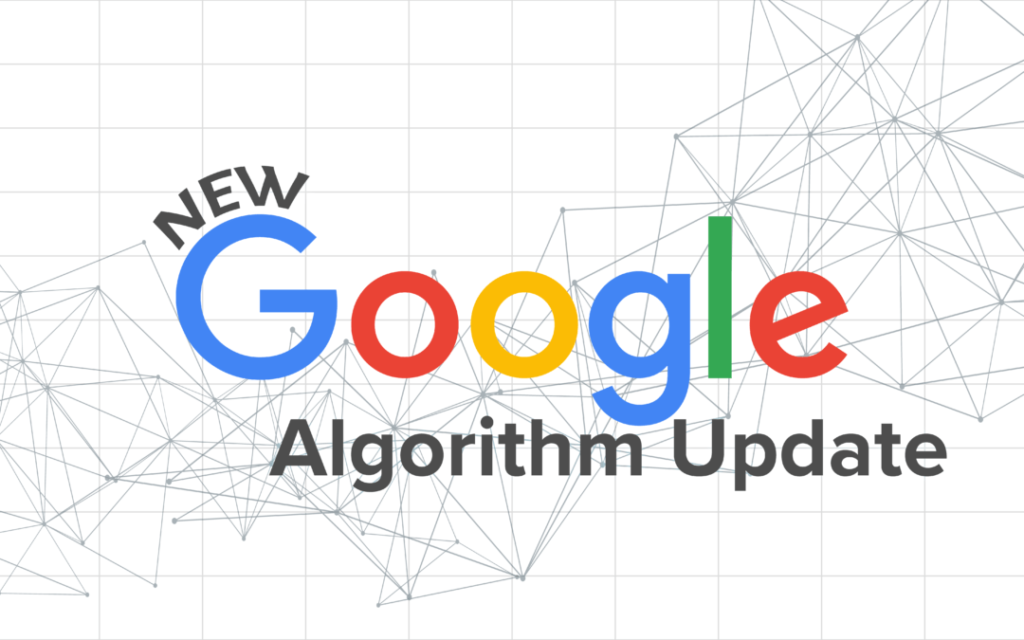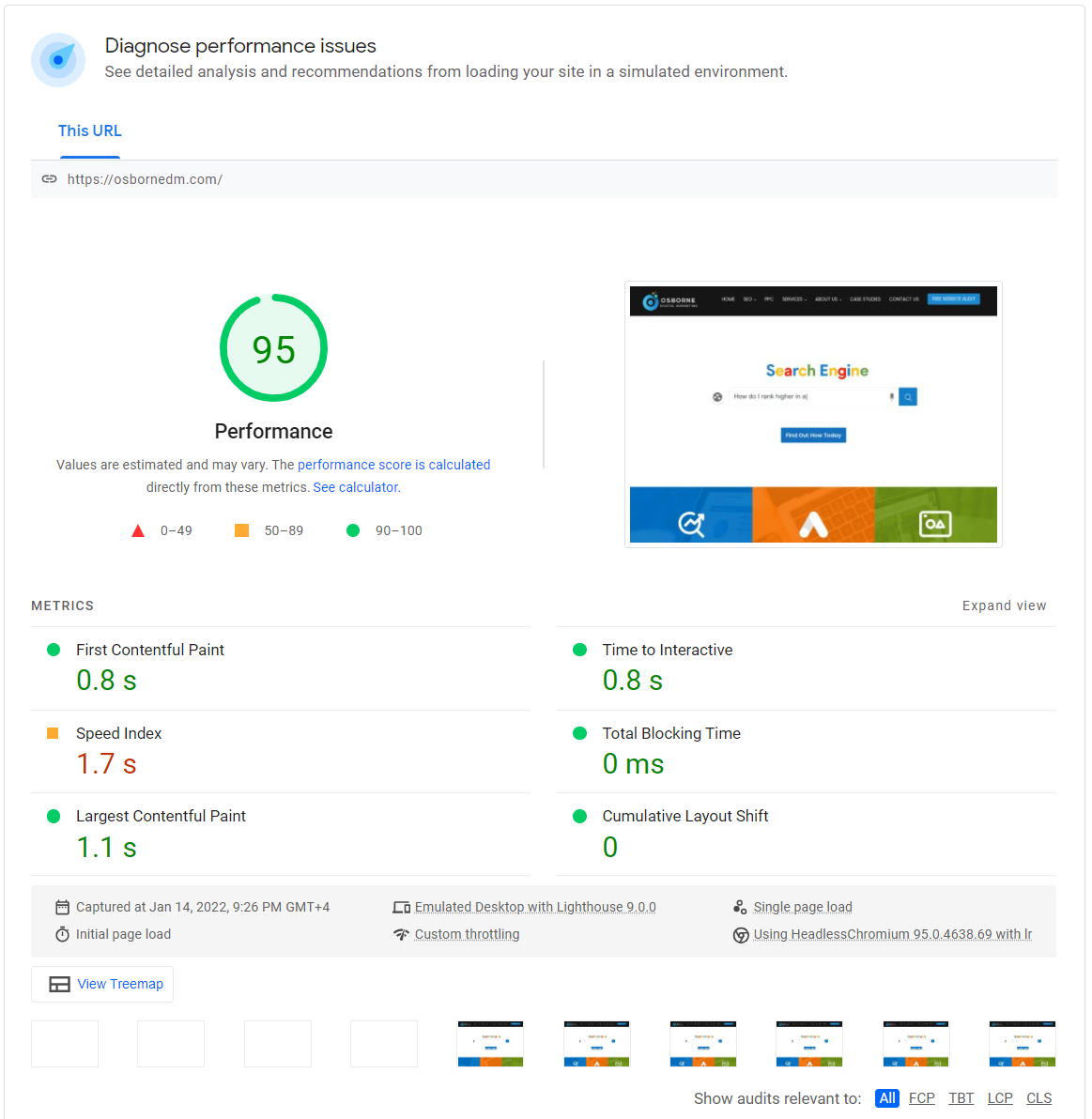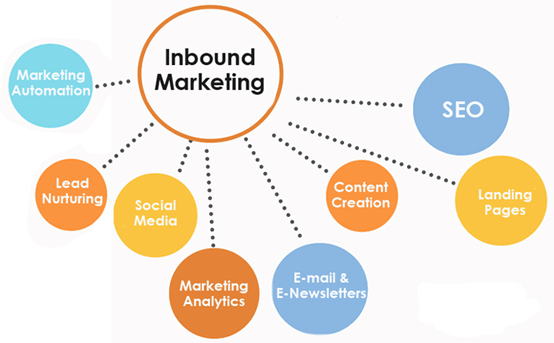Google has always aimed at providing relevant, quality content to its users. So, it’s constantly updating its core algorithms, the very same algorithms that determine how websites are ranked on the search result page.
Google’s launching thousands of algorithm updates every year. For example, in 2018, Google developers made a whooping 3,000 changes to its algorithms. And while some of these updates aren't extremely significant SEO-wise, quite a few of them can impact your site's visibility, and Google’s 2022 future updates are no different.
Google is placing more emphasis on the user's overall experience on a certain site. So, the better the user experience is on a particular page, the more traffic the page will get.
So how can site owners optimize the content on their pages to ensure their Search Engine Optimization (SEO) strategy isn't outdated?
Table of Contents
The Google Page Experience Update
This page speed update is being gradually applied; between June and August of 2021, Google released the update for mobile search, while the desktop update is expected to come between February and March 2022. And here are the six pillars of this update to help with your SEO strategy:
Largest Contentful Paint (LCP)
LCP is a ranking signal that measures the time it takes for the primary visuals of your web page to load, be it the main text or the images on your page.
The best websites should have an LCP speed of around 2.5 seconds, according to the search engine. Anything longer than that means the website is slow and negatively affects the users' experience.
Cumulative Layout Shift (CLS)
Have you ever been on a website and seen the page jerk up and down while loading? That's what the search engine refers to as layout shifts, and they’re often caused by loading ads. Overall, Google expects a website's CLS to be less than 0.1.
First Input Delay (FID)
The time it takes to perform the user’s intended action on a website is known as FID. For example, if you're visiting a website to download a PDF, the time you have to wait on a website before being able to click on the download link is the site's FID. And for Google, an FID of 100 milliseconds or less is ideal.
HTTPS Security
HTTPS is an acronym for Hypertext Transfer Protocol Secure. It is the secure version of the popular HTTP (Hypertext Transfer Protocol).
The encryption offered in this protocol ensures that the data users enter doesn't compromise their security. This encryption is vital if your website receives sensitive customer data like bank accounts, emails, and any form of login details.
Modern browsers like Chrome already flag websites that don't have HTTPS security. But with this update, any website without HTTPS security will receive low rankings.
Absence of Intrusions
Have you ever visited a website only to be confronted with a considerable ad banner that seems difficult to close? Unfortunately, this trend is the new order of the day, and it significantly affects user experience.
Google frowns on such intrusions, especially for mobile devices because of their smaller screens. That's why, for years, the search engine has been lowering the ranking of websites that show these ads.
And with this update coming to desktop search in 2022, the search engine will reward sites that don't have such unwanted popups with high rankings.
Mobile Friendliness
Mobile-friendliness has been a popular SEO strategy for a long time. With millions of people using their phones for browsing rather than a desktop, having a mobile-friendly website is a must for most, if not all, sites.
And while this isn’t a part of the desktop update coming in March 2022, it’s still a core element of this update as a whole. So you wouldn’t be getting good rankings if your website is optimized for desktop search at the expense of mobile search.
How Can You Prepare for the Page Experience Update?
To prepare for the upcoming update, you need to check your website to make sure it meets all of Google's specifications for the points above.
Making sure that your website uses the “HTTPS” protocol and has little to no popups or intrusive ads should be easy enough to rank high in Google search. But the first three points (LCP, CLS, and FID) are where the difficulty lies.
When most people read that their CLS should be less than 0.1, they’d probably wonder how to even measure that figure. Yet, thankfully, Google Search Console offers you a Page Experience report and a Core Web Vitals report.
The Page Experience report shows you the web pages or URLs that are performing well and those performing poorly. Here's an example.
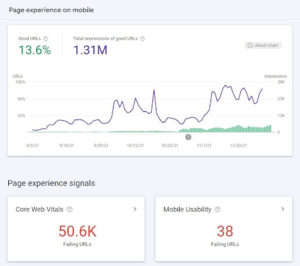
And the Core Web Vitals report is even more insightful. You can see which pages are good, poor, or need improvement.
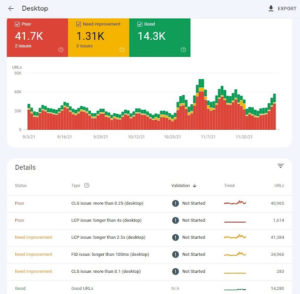
So, for SEO success, it’s essential to keep an eye on your Page Experience metrics to see which URLs need tweaking, not wait until your rank in the search results for relevant keywords to go under for you to take action.
The Link Spam Update
In July 2021, Google announced the Link Spam Update, its latest effort to fight spam links. And if you know a thing or two about SEO, you know that ranking in Google SERP (Search Engine Result Page) largely depends on links.
Think of links as academic citations or references; just as journals don't accept publications without authority links, Google also prioritizes content with authoritative and relevant links.
As a result, an entire linking industry has emerged. Some websites have posts stuffed with keywords and links in an attempt to outwit Google's algorithm, and others engage in link buying.
These trends have helped Google clearly outline link schemes that can negatively affect your site. They include:
- Giving money in exchange for posts that contain links
- Using software and automated programs to create keyword-rich posts
- Lining up links on footers of pages
- Adding optimized links in forum comments


Of course, search engines don’t frown on bloggers monetizing their blog, for example, but they expect this monetization to be done right. Read more about Google's thoughts on link schemes.
The Link Spam update is meant to further reduce the occurrence of all kinds of linking schemes, and it primarily focuses on affiliate links and sponsored guest posting. So here's what Google expects website owners and managers to do:
Affiliate Links
Most product reviews and shopping guides have affiliate links. In fact, there are many websites and businesses solely dependent on affiliate marketing; it’s how they make money.
Google algorithms don’t have any issue with people running affiliate sites or creating posts with affiliate links. However, they require sites involved in these programs to tag such posts appropriately.
Basically, affiliate links should be tagged: <rel="sponsored”>, and this tag must be added whether the link is created dynamically or manually.
So when Google algorithms find affiliate links that aren’t tagged as such, they actually manually nullify these links. In other words, Google will ignore such links, affecting your position on the search results page.
As Google puts it, "Both manual and algorithmic actions may affect how we see a site in Search, so it's good to avoid things that may cause actions, where possible."
Sponsored and Guest Posts
Sponsored and guest posts are also another popular way of monetizing content; many marketers and businesses run campaigns to post on other sites to get backlinks.
However, having seen numerous poor guest post campaigns, Google has become more stringent on such practices. Again, the Google algorithm expects sponsored and guest posts to have proper tags. In general, you should have the following tags:
- <Rel="sponsored post”>for paid placements or advertisements.
- <Rel="ugc”> for user-generated content like comments and community posts.
- <Rel="nofollow"> when the other tags don't apply.
And for more information on tagging your posts correctly, read this post.
What Can You Do About the Link Spam Update?
Well, the Link Spam update is already in force, and most websites will likely begin to feel the brunt of the update soon.
So if you've had some shady links in the past, it might be time to do some house cleaning. Better yet, having a website audit will immensely help you develop a successful SEO strategy.
Generally speaking, if you've already tagged links as "nofollow," you don't have to relabel them to "sponsored."
However, be sure to tag appropriately in the future. And if you've sponsored some posts yourself, consider reaching out to the website featuring your sponsor links and having them add the <rel=”sponsored”> tag.
What's more, when reconsidering your SEO strategy, think about expanding your guest blogging strategy. So, instead of paying for or buying links, look at creating content that earns you links.
Other Google Algorithm Updates
In light of the 2022 update, other major Google algorithm updates will also affect how you rank in Google’s search results. So here’s an overview of them.
The Core Algorithm Update
While Google isn’t really upfront about what this update involves, we do know that it affects the indexing and ranking processes.
Google began rolling two algorithm updates before the July iteration of the Core Algorithm Update, which is somewhat unusual. As a result, many are speculating that Google might have introduced more effective anti-spam tools in this update. Also, the update is believed to have helped with domain crowding.
The Multitask Unified Model (MUM)
This Google algorithm update uses AI to help users get answers for complex search queries that can't be answered comprehensively by traditional Google search results.
For example, the answer to this Google search, “What are the differences between bodies of water like lakes, rivers, and oceans?” would require multiple paragraphs, something that a featured snippet can't do. That’s where the MUM update comes in.
So far, MUM has been trained in over 75 languages and is ready to answer complex questions. And currently, it's being used to process and understand vaccine queries. So, we can expect MUM to be more prominent in 2022.
Product Reviews Update
Lastly, let's look briefly at the Product Reviews update. It’s been rolled out in two phases thus far, one in April and another in December of 2021. And both rollouts were geared towards ensuring that people are producing in-depth and relevant reviews on their websites.
As a result, Google rewards reviews that provide expert and first-hand knowledge, demonstrate the uniqueness of the reviewed products, and provide quantitative data on them. Also, the reviews must mention similar products, compare them, and show which ones are best for specific use cases to rank high on the search results page.
A good review would also speak on the drawbacks of a product and what can be done to improve it. Further, it’d describe how a product has evolved over the years, what improvements have been made, and touch on what actual users have to say about the product from their experience.
So, if you do product reviews, it's time to add some depth and expertise to it and make it as comprehensive as possible.
Wrapping Up
Whenever major Google updates are announced, there's apprehension in the SEO world. And although it can be confusing at first, altering your SEO strategy to comply with Google updates isn’t at all impossible.
The main goal for any search engine is to return relevant and helpful content to users, so as long as you're creating high-quality content, you have nothing to worry about.
And for a successful SEO strategy in 2022, keep an eye on Google's algorithm updates. This year, the main Google updates are the Page Experience Update, the Link Spam Update, Core Algorithm Update, MUM Update, and Product Reviews Update.
Overall, focus on delivering a smooth experience for your website visitors, earning links instead of buying them, creating relevant content, and making changes before your rank in the search results page goes under.
